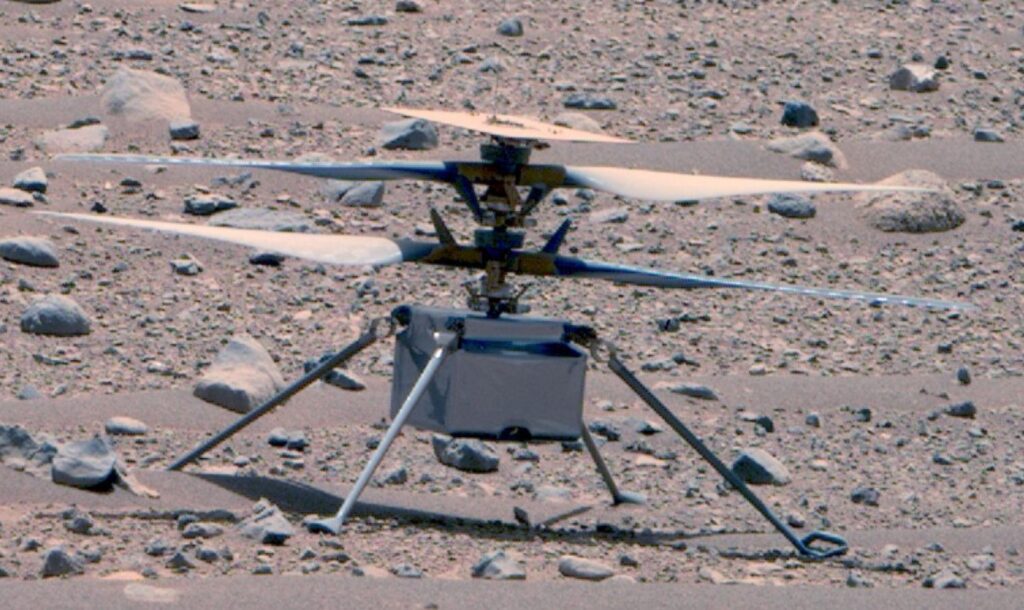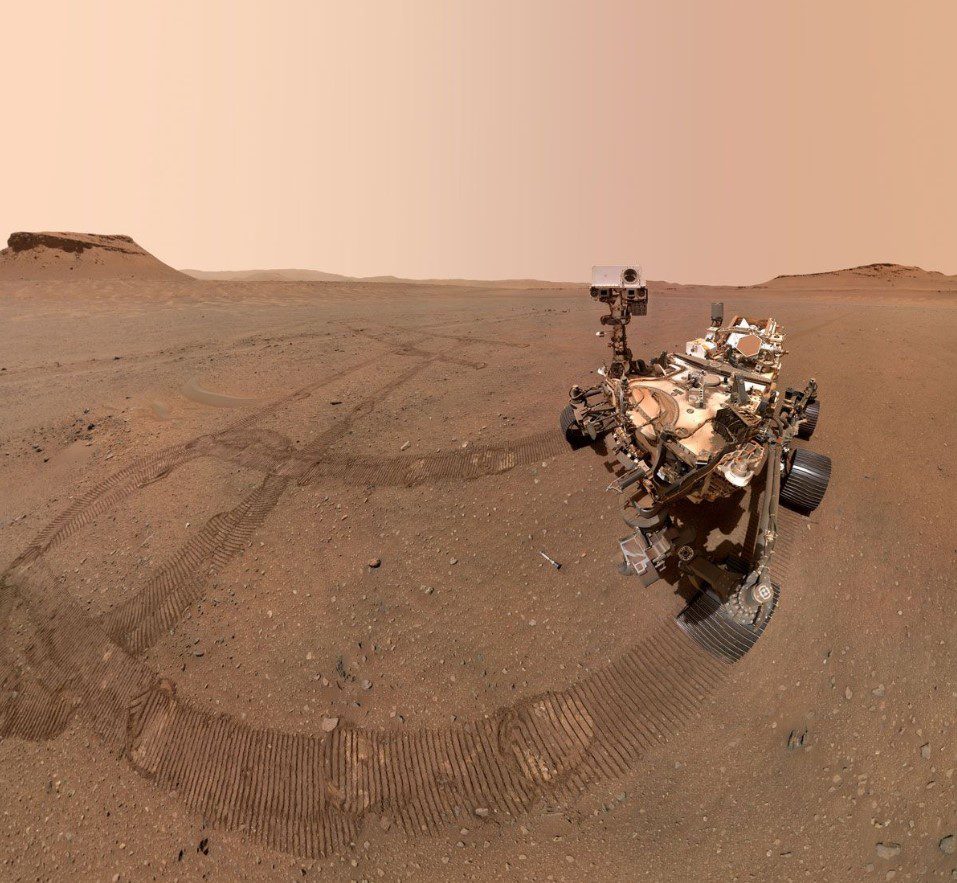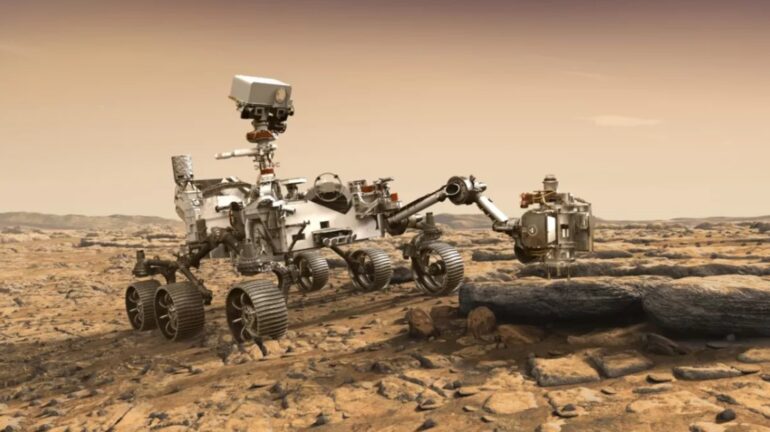TL;DR:
- Artificial intelligence, particularly ChatGPT, has become popular as a tool for generating human-like text responses.
- The use of AI in scientific exploration, such as on Mars, is a topic of discussion.
- Sercan Ozcan advises caution in relying solely on ChatGPT due to its limitations and potential for misleading information.
- Steve Ruff is skeptical about AI alone generating on-the-spot manuscripts and highlights the importance of human involvement in interpreting observations.
- Nathalie Cabrol emphasizes the need for AI to support and augment human activities but also raises concerns about relying on algorithms for tasks like paper writing.
- Cabrol questions the potential consequences of AI encroaching upon aspects of research that define our humanity and suggests it may interfere with our evolutionary trajectory.
- Amy Williams recounts her experience using ChatGPT for scientific inquiries, acknowledging its benefits but also recognizing the knowledge cutoff and the need for human expertise.
- Williams believes AI should be used in conjunction with human involvement, as synthesizing new information and generating insights remains a human-driven process.
Main AI News:
The burgeoning presence of artificial intelligence (AI) has captured the attention and curiosity of the world. One AI tool that has gained immense popularity is ChatGPT, a language model powered by AI. Through extensive training and exposure to vast amounts of online information, ChatGPT has acquired the ability to generate text responses that mimic human-like interactions. With its diverse capabilities, this AI-powered marvel can handle queries, engage in discussions, and even produce written pieces.
Consider, for instance, the prospect of a robotic entity outfitted with ChatGPT or a comparable AI language model skillfully navigating the surface of Mars. Equipped with an array of scientific instruments, this intelligent bot could instantaneously analyze the data gathered on-site, potentially even uncovering evidence of past life. Such findings could then be seamlessly processed, assessed, and compiled into a scientifically coherent format.
The resulting product, meticulously arranged with informative footnotes, could be directly transmitted from the robot to prestigious scientific journals like Science or Nature for peer-reviewed publication. Perhaps, in a testament to technological progress, the reviewing process itself could be undertaken by AI-powered ChatGPT reviewers. This may sound far-fetched, but the question lingers: is it truly within the realm of possibility?
Sercan Ozcan, a Reader in Innovation and Technology Management at the University of Portsmouth in the United Kingdom, cautiously contemplates this prospect. While acknowledging the potential, he warns of the inherent limitations of ChatGPT. Ozcan emphasizes that, due to its tendency for “hallucination” and lack of complete accuracy, employing ChatGPT in scenarios devoid of substantial prior work for analysis and emulation might yield misleading information.

NASA’s Ingenuity Mars helicopter, photographed by the agency’s Perseverance rover on April 16, 2023. Ingenuity has been used as a ‘scout’ to help identify locations for Perseverance to study. Source: NASA/JPL-Caltech/ASU/MSSS
Despite its capabilities, Ozcan asserts that humans, despite their slower pace, still possess the capacity to outperform ChatGPT in certain domains. His advice, therefore, is to exercise caution and refrain from relying on ChatGPT in areas where errors are simply unacceptable.
Steve Ruff, an associate research professor at Arizona State University’s School of Earth and Space Exploration, possesses a deep affinity for the study of Mars. Ruff voices skepticism regarding the feasibility of generating on-the-spot manuscripts using AI alone. He believes that the scientific process necessitates robust debates among teams, with human involvement crucial for interpreting and scrutinizing observations.
Ruff argues that even with AI trained on existing data, confidently interpreting novel observations, especially those derived from new instrument datasets, remains a challenge. The intricate nature of each dataset demands meticulous efforts for comprehension and disentanglement.
In the near term, Ruff envisions the role of AI in rover operations, where it could contribute to tasks such as target selection for observations, effectively reducing human involvement. Additionally, AI could prove invaluable in aiding navigation, further enhancing the efficiency and effectiveness of exploration endeavors.
Pondering the world we aspire to inhabit, Nathalie Cabrol, the Director of the Carl Sagan Center for Research at the SETI Institute in Mountain View, California, poses a vital question. In her view, harnessing the potential of artificial intelligence (AI) involves recognizing it as a formidable tool that should support and augment human activities. Cabrol emphasizes that AI already plays a role in our daily lives in various forms, and further advancements have the potential to enhance our experiences.
However, Cabrol also acknowledges the dual nature of human tools, which can sometimes lead individuals astray into realms of unfounded thinking. She cautions against the notion of delegating the task of paper writing to algorithms.
As a scientist, Cabrol cherishes the process of crafting papers, viewing it as a significant juncture where her ideas materialize on paper, showcasing the culmination of her work. She raises concerns about the implications of allowing an algorithm to undertake this task, as it raises questions about the credibility of the review process. If algorithms are considered more competent and unbiased, then the assumption follows that humans are ill-suited for reviewing such papers.




Perseverance rover on the surface of Mars. Source: NASA/JPL-Caltech/MSSS
Contemplating the future, Cabrol highlights the potential consequences of adopting AI for various aspects of research, such as grant proposal writing. She prompts us to consider which aspects of our endeavors we wish to preserve as uniquely human. Recognizing our inherent fallibility, Cabrol argues that learning from mistakes and adapting is an integral part of human evolution.
By allowing AI to encroach upon these realms that define our humanity, she suggests we are interfering with our own evolutionary trajectory. Cabrol even draws parallels to the concept of “transhumanism,” which envisions the human race surpassing its current limitations through science and technology.
Cabrol cautions against dismissing these concerns merely because it involves a paper-writing algorithm rather than a neural implant. She underscores the broader discourse surrounding the potentially troubling misuse of AI, emphasizing that it transcends trivialities. At its core, it prompts us to contemplate the kind of species we truly aspire to be. While recognizing AI’s utility as a tool, Cabrol firmly asserts the need to confine its role within those boundaries, preserving the essence of our human nature.
Engaging in a thought-provoking discussion, Amy Williams, an assistant professor in Geological Sciences at the University of Florida and a participating scientist on NASA’s Curiosity and Perseverance rover missions, shares her perspective on the use of AI, particularly ChatGPT, in the context of scientific exploration on Mars.
Williams recounts her experience with ChatGPT, revealing that she utilized the tool to inquire about the organic molecules discovered by the Mars rovers, drawing from her expertise in the field. She acknowledges that ChatGPT provided robust and suitable statements, which she could incorporate into outreach talks for the general public.
However, she also recognizes the tool’s limitations, noting that it relies on data available up until a certain point, representing a knowledge cutoff. This constraint became apparent to Williams when the responses she received did not encompass the full breadth of published results on organics on Mars since September 2021.
While acknowledging the potential for future iterations of ChatGPT + AI to incorporate more recent data and generate comprehensive syntheses, Williams asserts that these tools should be used in conjunction with human expertise rather than as substitutes. She highlights the challenges posed by the limited data uplink and downlink capabilities of the current Deep Space Network, making it difficult to upload the extensive knowledge base required for complex scientific manuscripts to be generated by onboard AI. The contextual understanding, retrospection, introspection, and prospection necessary for cutting-edge planetary research still largely rely on human involvement.
Williams acknowledges that ChatGPT + AI is a powerful tool, streamlining literature searches and providing concise summaries of existing knowledge. It can save time and present information effectively. However, she emphasizes that the process of synthesizing new information, placing it in context, and generating novel scientific insights remains a human-driven endeavor.
While AI-powered tools can enhance the conveyance of information and facilitate new discoveries, Williams believes that they cannot replace the human capacity for critical thinking and contextual analysis. Nonetheless, she playfully acknowledges that if the predictions of AI-centric science fiction movies prove true, her perspective might need revision.
Conlcusion:
The integration of artificial intelligence, exemplified by tools like ChatGPT, in scientific exploration and research poses both opportunities and challenges. While AI has demonstrated its ability to streamline processes, provide concise summaries, and enhance the conveyance of information, it is clear that human expertise and critical thinking remain essential for synthesizing new insights and placing information into context.
As businesses and organizations navigate the evolving landscape of AI applications, it is crucial to recognize the limitations and potential risks associated with relying solely on AI-driven tools. Balancing the strengths of AI with human judgment and decision-making will be crucial to harnessing the full potential of these technologies while ensuring accuracy, integrity, and meaningful progress in the market.

